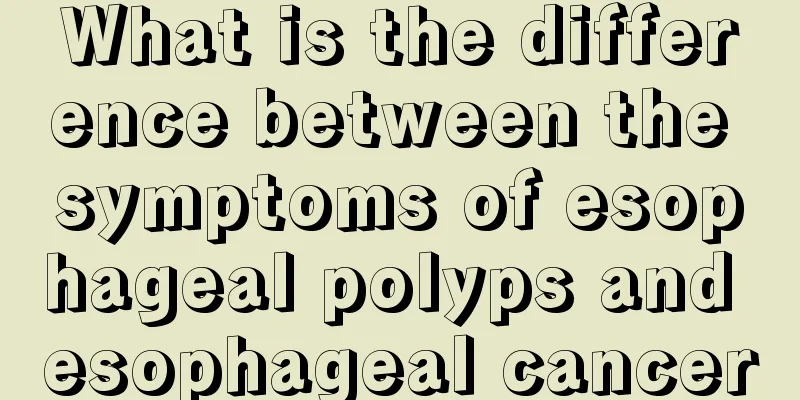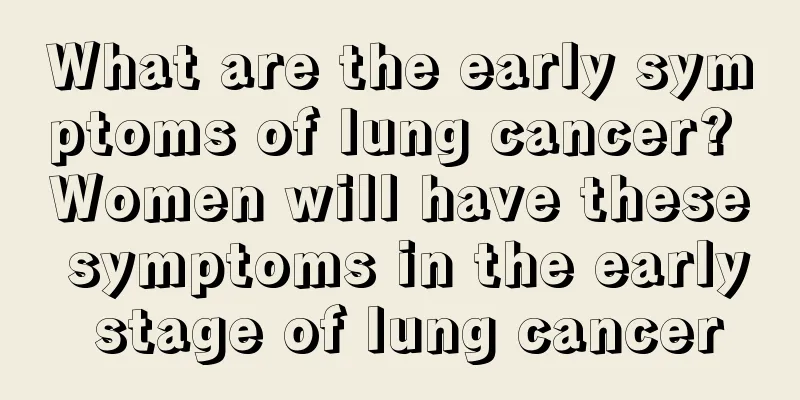What is the difference between the symptoms of esophageal polyps and esophageal cancer

|
The difference in symptoms between esophageal polyps and esophageal cancer lies in the different nature of the diseases, which leads to different severity and characteristics of their manifestations: the symptoms of esophageal polyps are mostly mild discomfort or no symptoms, while esophageal cancer is usually accompanied by progressive dysphagia and other systemic symptoms, and requires early medical examination to rule out the risk of malignant lesions. 1Symptoms of esophageal polyps Esophageal polyps are benign lesions that are often formed due to abnormal local proliferation of the mucosa. In most cases, the symptoms of esophageal polyps are mild, and some people do not experience obvious discomfort, and they may even be discovered accidentally through a physical examination or gastroscopy. If the lesion is large or in a special location, mild symptoms may occur, such as a foreign body sensation when swallowing food, discomfort, or mild sore throat. Because esophageal polyps are benign lesions, they are rarely life-threatening, but some types have the risk of malignant transformation and require close monitoring. Solutions include: ① Observation and follow-up: For asymptomatic small polyps, doctors usually recommend regular gastroscopy to assess whether they have grown or developed lesions. ②Endoscopic resection: If the polyp is large or suspected to have a tendency to malignancy, endoscopic resection is recommended, which has less trauma and faster recovery. ③Diet and lifestyle adjustments: Avoid spicy food, quit smoking and drinking, and minimize irritation to the esophagus to help prevent further development of polyps. 2Symptoms of esophageal cancer Esophageal cancer is a malignant tumor, and its symptoms are more severe and gradually worsen as the disease progresses. Early symptoms may be similar to those of esophageal polyps, such as mild swallowing discomfort or foreign body sensation. However, as the tumor grows and invades more extensively, patients with esophageal cancer often experience progressive dysphagia, difficulty swallowing solid food, and even difficulty swallowing liquids in the later stages. It may also be accompanied by systemic symptoms such as weight loss, chest and back pain, hoarseness, and repeated vomiting. Treatment options include: ①Surgical treatment: Early esophageal cancer can be treated with surgical resection of the lesion, and some patients can enter a long-term remission period. ② Radiotherapy and chemotherapy: For patients in the advanced stage or those who are not suitable for surgery, radiotherapy and chemotherapy are usually used in combination to slow down the progression of the disease. ③Targeted and immunotherapy: Some patients can choose targeted drugs or immunotherapy to improve efficacy. Although there is overlap in symptoms between esophageal polyps and esophageal cancer, esophageal cancer progresses faster and has more obvious systemic manifestations. If you have persistent dysphagia, sudden weight loss, and other symptoms, be sure to seek medical attention in a timely manner. The key to detection and treatment is early detection, which can not only significantly increase the cure rate, but also improve the quality of life. Regular gastroscopy is an effective way to prevent and detect esophageal diseases early. |
<<: How long does it take to get pregnant after teratoma surgery
>>: How long does it take to get pregnant after teratoma surgery
Recommend
What is the cause of the white tongue
People's quality of life is constantly improv...
What's the matter with thick arms
Everyone wants to have a slim figure and hopes th...
How to prevent esophageal cancer
How to prevent esophageal cancer? Esophageal canc...
Medicine to protect the knees
If we want to protect our knees physically, the b...
What nutrients are lacking in hair loss?
First of all, everyone should know that the main ...
The more I sleep, the more tired I feel and my limbs become weak
Sleeping is an important way for our body to rest...
Why does lung cancer cause coughing up blood
If lung cancer patients currently have symptoms o...
How to correct a crooked mouth when smiling
Smiling can bring a sense of intimacy to people, ...
The ten major benefits of loquat wine
Loquat wine has many benefits, the most common on...
Symptoms of milk powder protein allergy
Some mothers may not be able to breastfeed direct...
Can white wine and egg yolk enhance sexual performance?
It is a folk saying that adding white wine and eg...
How to improve eloquence and adaptability?
Everyone wants to have good eloquence, especially...
Is systemic lupus erythematosus contagious? What is the pathogenesis?
Systemic lupus erythematosus is an autoimmune dis...
How to use pearl powder
Pearls are very common in our daily lives. What w...
Can high blood lipids cause edema?
Hyperlipidemia is a disease that many middle-aged...









